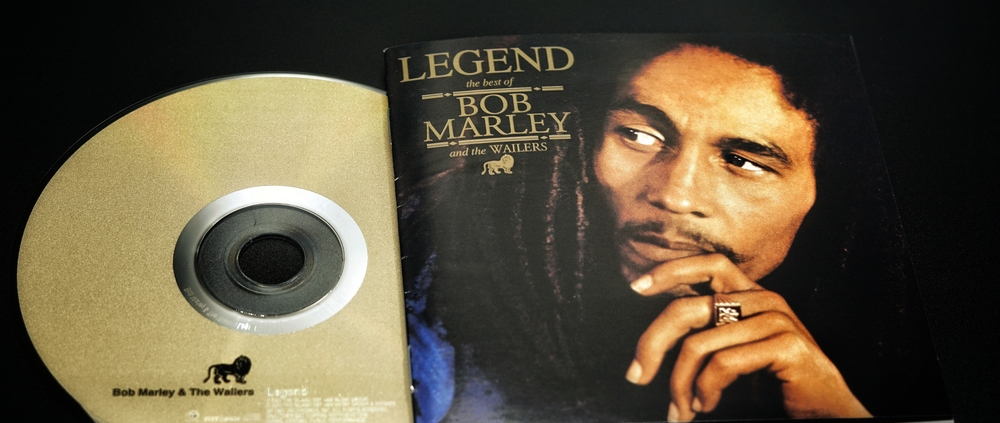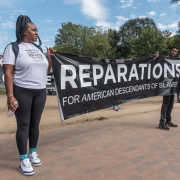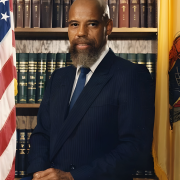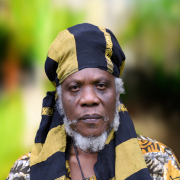Bob Marley: The Jamaican Poet and Singer
By Brian Figeroux, Esq. | Editorial Credit: Stefano Chiacchiarini ’74 / shutterstock.com
Bob Marley’s music and poetry continue to inspire generations with their messages of liberation, unity, and spirituality. As both a poet and a musician, Marley had a unique ability to articulate the struggles of the oppressed while offering hope and a vision for a better future. Read more at www.askthelawyer.us. To read the complete analysis in our publication, click here, and on our civil rights blog, click here.
Introduction
Bob Marley, born Robert Nesta Marley on February 6, 1945, in Nine Mile, Jamaica, is one of the most iconic figures in world music and an enduring symbol of Rastafarianism, resistance, and cultural identity. As a singer, songwriter, and poet, Marley’s contributions to reggae music helped bring Jamaica’s rich culture to the global stage. His music transcends boundaries, appealing to people from all walks of life, due to its profound messages about love, freedom, equality, and spirituality.
While Bob Marley’s global fame is largely attributed to his role in popularizing reggae music, his work is deeply rooted in the socio-political and spiritual landscape of Jamaica. His lyrics often reflect the struggles of the oppressed, particularly the black community in Jamaica and beyond. Through his poetic lyricism, Marley conveyed the values of Rastafarianism, a spiritual movement that blends African consciousness with Christian theology, and championed the causes of justice, peace, and redemption.
Marley’s philosophy, conveyed through his music, continues to resonate long after his death in 1981. His songs remain relevant to contemporary discussions on race, oppression, freedom, and spirituality. In this analysis, we will explore Marley’s artistic background, his influence as a poet and musician, and the specific message of his song “Crazy Baldhead.”
Early Life and Influences
Bob Marley’s childhood was marked by poverty and hardship, which shaped much of his worldview and later artistic output. Born to a white Jamaican father and a black Jamaican mother, Marley’s mixed-race identity often left him marginalized in a racially divided society. Growing up in the rural village of Nine Mile and later moving to the Trenchtown ghetto in Kingston, Marley witnessed firsthand the struggles of Jamaica’s poor black population. These experiences would deeply influence his music and poetry, which frequently highlighted themes of poverty, inequality, and racial injustice.
Marley’s musical journey began in the 1960s, where he formed a band with Peter Tosh and Bunny Wailer, which eventually evolved into The Wailers. The band initially produced music influenced by ska and rocksteady, but by the early 1970s, they had embraced the emerging genre of reggae. Reggae, with its distinctive offbeat rhythm and heavy bassline, became the perfect vehicle for Marley’s messages of social change, resistance, and spiritual awakening.
The spiritual and political dimensions of Marley’s music are inseparable from his embrace of Rastafarianism in the late 1960s. Rastafarianism, which emerged in Jamaica in the 1930s, is rooted in the belief in the divinity of Haile Selassie I, the former emperor of Ethiopia, and a strong connection to African heritage and repatriation. Rastafarian teachings profoundly influenced Marley’s lyrics, which frequently referenced themes of liberation from “Babylon” (a metaphor for oppressive Western systems) and the return to Zion (Africa, as the spiritual homeland).
Key Themes in Bob Marley’s Music
Bob Marley’s work explores a variety of interconnected themes, all of which contribute to his status as a powerful voice for social change and spiritual upliftment. Key themes in his work include:
- Freedom and Liberation: Marley often used his music as a platform to call for the liberation of the oppressed, particularly black people worldwide. This theme is prominent in songs like “Redemption Song,” “Get Up, Stand Up,” and “Africa Unite.”
- Spirituality and Rastafarianism: As a devoted Rastafarian, Marley infused his music with spiritual messages, focusing on the rejection of materialism, the glorification of Jah (God), and the eventual redemption of the African diaspora. His spiritual journey is encapsulated in songs such as “Jah Live,” “One Love,” and “Exodus.”
- Resistance to Oppression: Many of Marley’s songs reflect his opposition to political, social, and economic oppression, particularly that faced by black people in Jamaica and other post-colonial societies. His songs “Burnin’ and Lootin’” and “Crazy Baldhead” are examples of his defiant stance against systems of oppression.
- Unity and Love: While Marley’s work often dealt with serious political and social themes, he also emphasized the importance of unity, love, and human connection. Songs like “One Love” and “Could You Be Loved” exemplify his belief in the power of love to heal divisions.
- African Consciousness and Repatriation: Many of Marley’s songs advocate for a return to African roots and pride in black heritage. Songs like “Africa Unite” and “Zimbabwe” reflect his commitment to Pan-Africanism and the global liberation of black people.
Bob Marley as a Poet
While Marley is best known as a reggae musician, his lyrics reveal a deep poetic sensibility. His mastery of language, use of metaphor, and ability to articulate complex social and spiritual themes in a relatable way contribute to his status as both a poet and a musical icon.
Marley’s lyrics are often rich in symbolism. His frequent reference to “Babylon” as the oppressive system and “Zion” as the spiritual homeland draws from both the Bible and Rastafarian teachings. Similarly, his use of repetition, rhythm, and rhyme reflects the influence of both oral tradition and reggae’s syncopated structure.
The song “Redemption Song” exemplifies Marley’s poetic abilities. The lyric, “Emancipate yourself from mental slavery / None but ourselves can free our minds,” is not only a powerful call to action but also a deeply philosophical reflection on the nature of oppression. Through this kind of lyricism, Marley demonstrates his ability to blend the personal and political into a form of art that is both beautiful and urgent.
Analysis of Bob Marley’s “Crazy Baldhead”
Context of “Crazy Baldhead”
“Crazy Baldhead” is a song from Bob Marley and the Wailers’ 1976 album Rastaman Vibration. The album marked a turning point in Marley’s career, solidifying his international fame and further establishing him as a voice of resistance against political oppression and social injustice. “Crazy Baldhead” is a politically charged song, directly addressing issues of oppression, colonialism, and the marginalization of Jamaica’s black population.
The title “Crazy Baldhead” refers to people who reject Rastafarian principles and values, particularly those who represent oppressive systems. In Rastafarian culture, the term “baldhead” is often used pejoratively to describe individuals who are not part of the Rastafarian faith, particularly those who uphold the values of Babylon, or Western society. The “crazy baldhead” in this context represents the agents of the state, including police, government officials, and other figures of authority who oppress the poor and marginalized.
Lyrical Analysis
“Them crazy, them crazy / We gonna chase those crazy baldheads out of town.”
The opening lines set the defiant tone of the song. Marley uses the term “crazy baldheads” to represent the oppressive powers that control Jamaica’s social and political systems. By stating “We gonna chase those crazy baldheads out of town,” Marley is calling for the removal of these forces from the community. The repetition of “them crazy” emphasizes the irrationality and moral bankruptcy of the oppressive system, while the phrase “chase out of town” suggests the desire for liberation and autonomy.
“I’n’I build the cabin / I’n’I plant the corn / Didn’t my people before me / Slave for this country?”
In this verse, Marley draws attention to the historical exploitation of black Jamaicans. The phrase “I’n’I” is a Rastafarian term that emphasizes unity and equality between individuals, representing the collective spirit of the people. Marley references the hard labor of his ancestors, who built the infrastructure of Jamaica and worked on plantations as slaves, yet are still denied equality and justice. This verse serves as a powerful reminder of the legacy of colonialism and the ongoing struggles faced by the descendants of slaves.
“Now you look me with that scorn / Then you eat up all my corn.”
Marley highlights the hypocrisy and exploitation by the ruling class or oppressive powers. The “scorn” refers to the disdain that the elite or those in power hold for the poor, even as they profit from their labor and resources (“then you eat up all my corn”). This line critiques the way that the wealth generated by the working class is siphoned off by the rich, leaving the poor to continue suffering in poverty.
“We gonna chase those crazy baldheads out of town.”
The chorus is a rallying cry for action and resistance. Marley invokes the idea of collective power, urging his listeners to rise up against the oppressive forces that control their lives. The repetition of the phrase reinforces the call to expel the exploiters and reclaim agency over their own communities.
Themes in “Crazy Baldhead”
- Colonialism and Oppression: “Crazy Baldhead” is a direct critique of the colonial and post-colonial systems that have exploited black Jamaicans for centuries. Marley references the long history of slavery and labor exploitation, emphasizing the ongoing legacy of these injustices in contemporary Jamaica.
- Class Struggle: The song addresses the divide between the rich and the poor, critiquing the way in which the wealthy continue to profit off the labor and resources of the impoverished. Marley speaks for the disenfranchised, calling for an uprising against those who benefit from exploitation.
- Rastafarian Resistance: The song’s references to “baldheads” highlight the cultural divide between Rastafarians and those who reject or oppress their beliefs. Marley positions Rastafarianism as a spiritual and cultural force of resistance against Babylon, the symbol of Western oppression.
- Empowerment and Reclamation: The song is ultimately about empowerment. Marley’s call to “chase those crazy baldheads out of town” is a call for the reclaiming of power, dignity, and self-determination by Jamaica’s marginalized communities.
Musical Arrangement and Performance
Musically, “Crazy Baldhead” features a classic reggae rhythm with a strong emphasis on the bass and drums, which provide a solid foundation for the song’s message of resistance. The tempo is slow and steady, allowing Marley’s vocals to take center stage. His delivery is firm and resolute, underscoring the seriousness of the message. The backing harmonies from The Wailers add depth to the chorus, reinforcing the collective nature of the call for resistance.
The use of minimalist instrumentation allows the lyrics to shine, with the focus remaining on the powerful words rather than on intricate musical arrangements. This simplicity is characteristic of much of Marley’s work, where the message is always central.
Social and Political Impact of “Crazy Baldhead”
“Crazy Baldhead” was released during a time of political turmoil in Jamaica. The 1970s saw increasing violence between rival political factions and growing discontent among the poor. Marley’s music, particularly songs like “Crazy Baldhead,” resonated with the Jamaican population, many of whom felt disenfranchised by the government and the ruling class. The song’s message of resistance and empowerment gave voice to the frustrations of the marginalized, further solidifying Marley’s role as a spokesperson for the oppressed.
Beyond Jamaica, “Crazy Baldhead” speaks to global struggles against colonialism, racism, and inequality. Marley’s identification of the “crazy baldhead” as a metaphor for oppressive power structures transcends national borders, making the song relevant to liberation movements around the world.
Conclusion
Bob Marley’s music and poetry continue to inspire generations with their messages of liberation, unity, and spirituality. As both a poet and a musician, Marley had a unique ability to articulate the struggles of the oppressed while offering hope and a vision for a better future. Songs like “Crazy Baldhead” exemplify his commitment to social justice and his belief in the power of collective action.
Through his exploration of themes such as colonialism, class struggle, and Rastafarian resistance, Marley not only gave voice to the struggles of black Jamaicans but also connected his message to global movements for justice and equality. “Crazy Baldhead” remains a powerful anthem of resistance, and Marley’s legacy as a poet and singer continues to resonate across cultures and generations.












Leave a Reply
Want to join the discussion?Feel free to contribute!